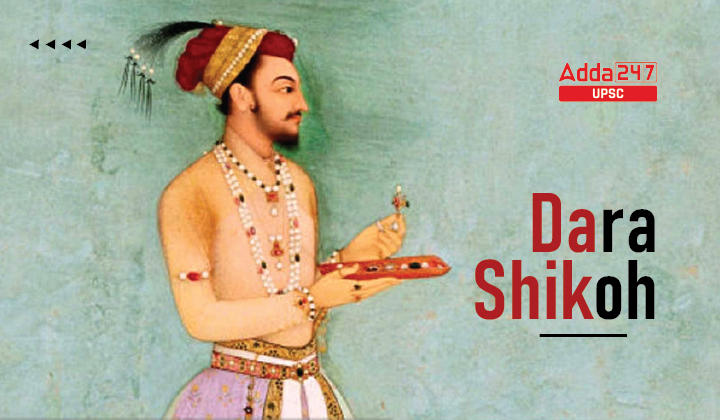Table of Contents
Dara Shikoh- Relevance for UPSC Exam
General Studies I- Medieval History.
Context
The Vice President has released the Arabic Version of “Majma Ul-Bahrain” of Mughal Prince Dara Shikoh.
Who was Dara Shikoh?
- Dara Shikoh, who was Mughal emperor Shah Jahan’s son and expected heir, was killed on the orders of his brother Aurangzeb in 1659 after losing the war of succession.
- He was the eldest son and heir-apparent of the Mughal emperor Shah Jahan.
- Dara was designated with the title Padshahzada-i-Buzurg Martaba (Prince of High Rank) and was favored as a successor by his father and his older sister, Princess Jahanara Begum.
- In the war of succession which ensued after Shah Jahan’s illness in 1657, Dara was defeated by his younger brother Prince Muhiuddin (Aurangzeb).
- He was executed in 1659 on Aurangzeb’s orders in a bitter struggle for the imperial throne.
Legacy of Dara Shikoh
- Dara was a liberal-minded unorthodox Muslim as opposed to the orthodox Aurangzeb.
- He authored the work Majma Ul-Bahrain (The Confluence of the Two Seas), which argues for the harmony of Sufi philosophy in Islam and Vedanta philosophy in Hinduism.
- It was Dara Shikoh who was responsible for making the Upanishads available to the West as he had them translated.
- He had commissioned a translation of Yoga Vasistha.
- A great patron of the arts, he was also more inclined towards philosophy and mysticism rather than military pursuits.
- He translated the Upanishads and other important works from Sanskrit to Persian. He was convinced that the Upanishads are what the Qur’an calls ‘Al-Kitab Al-Maknoun’ (The Hidden book).



 TSPSC Group 1 Question Paper 2024, Downl...
TSPSC Group 1 Question Paper 2024, Downl...
 TSPSC Group 1 Answer key 2024 Out, Downl...
TSPSC Group 1 Answer key 2024 Out, Downl...
 UPSC Prelims 2024 Question Paper, Downlo...
UPSC Prelims 2024 Question Paper, Downlo...




